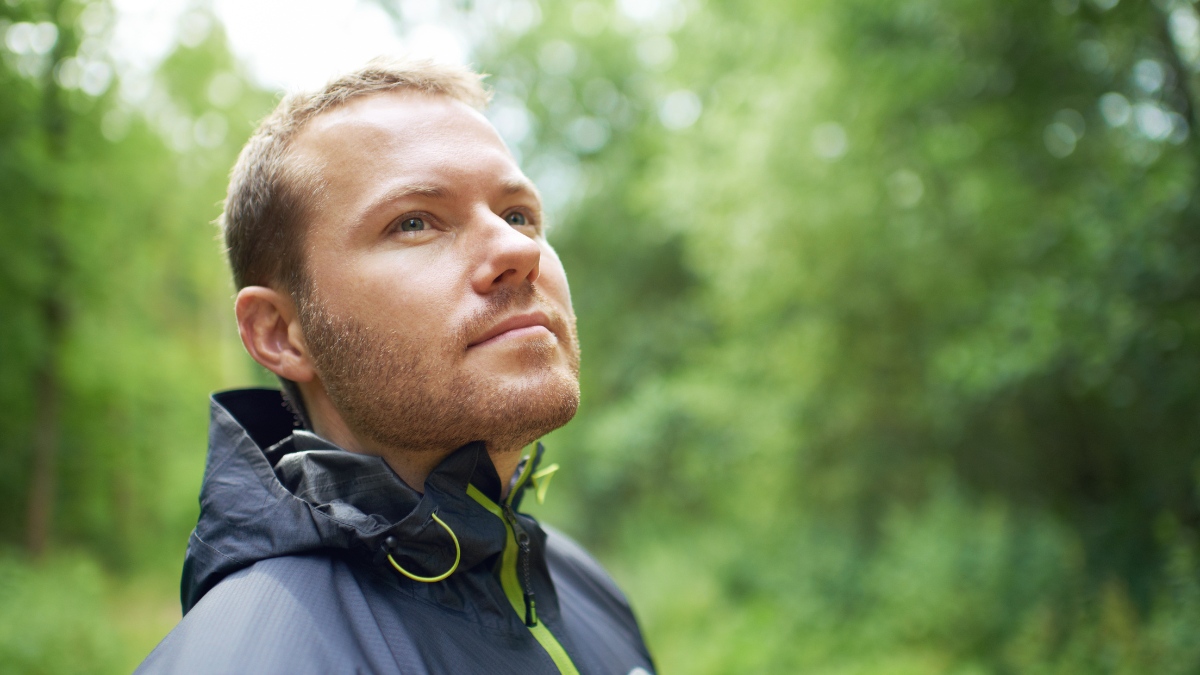Heroin Addiction Treatment in Boulder, Colorado
Heroin addiction does not discriminate; it can and does affect individuals of every age, class, ethnicity, or background throughout Colorado. The heroin drug crisis is closely connected with the nationwide opioid crisis, a public health emergency creating a demand for heroin addiction treatment in Boulder, Colorado.
What Exactly is Heroin?
Heroin is a highly addictive substance in the opioid category of drugs created from morphine. It can be a white or brown powder or a black sticky substance known as black tar heroin. Heroin can be injected, sniffed, snorted, or smoked. Heroine mixed with crack cocaine is called speedballing.
Heroin affects the brain by triggering a heightened feeling of dopamine in the brain’s reward center. Heroin is so habit-forming that it’s considered one of the world’s most dangerous substances. It produces an intense high that can hook people after just a few uses.

Why is Heroin so Addictive?
Heroin is highly addictive due to its powerful effects on the brain. Many ask, “How does heroin affect the brain?” When ingested, heroin binds to opioid receptors in the brain, leading to feelings of euphoria and pain relief.
Hence, heroin’s addictive nature comes from its ability to produce intense pleasure and its physiological and psychological impact on users. The effects of heroin that contribute to it being so addictive include:
- Rapid onset of effects: Heroin taken by injection, smoking, or snorting crosses the blood-brain barrier quickly. This rapid onset of action leads to an intense and almost immediate feeling of euphoria, which users find extremely rewarding.
- Intense euphoria and relief from pain: Heroin activates opioid receptors in the brain, which results in powerful pain relief and a sense of profound well-being, reinforcing drug use as individuals seek to recreate these feelings.
- Tolerance: With continued use of heroin, the body becomes tolerant to the drug’s effects, which means that over time, users need to take higher doses to achieve the same level of euphoria. Hence, addiction takes hold.
- Physical dependence: Chronic heroin use can lead to physical dependence, meaning that the body adapts to the presence of the drug and experiences withdrawal symptoms when the drug is not taken. Withdrawal symptoms can be intensely uncomfortable, making it difficult for individuals to quit using the drug.
- Psychological dependence: Beyond physical dependence, heroin use can also lead to strong psychological dependence. Users often become preoccupied with obtaining and using the drug, which can disrupt their daily lives and lead to a compulsion to use, even when they want to quit.
- Cravings: Heroin use can lead to powerful cravings for the drug, which various environmental cues and stressors can trigger. These cravings make it challenging for individuals to stop using heroin.
- Co-occurring mental health issues: Many individuals who use heroin have co-occurring mental health disorders such as depression, anxiety, or post-traumatic stress disorder. Heroin may be used as a form of self-medication to cope with these issues, further reinforcing its addictive nature.
Prolonged heroin addiction often causes severe health consequences. Overdosing on heroin leads to respiratory depression. Seeking a heroin addiction treatment program early in addiction is highly encouraged.
Signs of Heroin Use and Addiction
Heroin addiction is not easy to hide. Like other addictive drugs, many physical, behavioral, and psychological signs will become apparent when abusing heroin.
Here are some of the signs of heroin use:
- Needle marks or “track marks” on the arms or legs
- Frequent nosebleeds, runny or blocked nose from snorting heroin
- Pinpoint pupils when under the influence
- Abscesses or infections at injection sights
- Weight loss and physical deterioration
- Changes in social circles, hanging with others who use drugs
- Restlessness and insomnia
- Neglecting responsibilities at work, school, or home
- Borrowing or stealing money to support a drug habit
- Secretive behavior
- Difficulty with memory and concentration
- Cravings and thoughts about heroin
- An inability to stop or control heroin use despite negative consequences.
Keep in mind that not everyone with heroin addiction will exhibit every sign. Additionally, the severity of the effects of heroin may vary from person to person. Anyone exhibiting all or any of the signs of addiction should seek a heroin addiction treatment center immediately.
Treatment for Heroin Addiction
Flatirons Recovery’s heroin addiction treatment in Boulder, Colorado, offers programs to meet the unique needs of each individual. The program focuses on holistic healing, addressing the physical, emotional, and spiritual aspects of addiction. Through a combination of evidence-based therapies and personalized care, individuals can achieve lasting recovery and live a fulfilling life free from heroin addiction.
Flatirons Recovery offers a comprehensive heroin addiction treatment program designed to address the physical, emotional, and psychological aspects of addiction.
Treatment for heroin addiction includes:
- Medical detoxification to safely manage withdrawal symptoms
- Individual and group therapy to address underlying issues contributing to addiction
- Medication-assisted treatment to reduce cravings and prevent relapse
- Aftercare support to help individuals maintain sobriety after completing the program
Treatment for heroin addiction typically involves a combination of therapies aimed at addressing both the physical and psychological aspects of addiction. One of the first steps in treatment is detoxification, which helps rid the body of heroin and manage withdrawal symptoms.

Heroin Withdrawl Symptoms
Healing from a heroin addiction is not for the faint of heart. Heroin withdrawal symptoms vary in severity and duration based on the individual’s level of dependence and how long they’ve been using heroin.
Common heroin withdrawal symptoms include:
- Anxiety
- Agitation
- Muscle aches
- Insomnia
- Sweating
- Yawning
- Runny nose
- Teary eyes
- Abdominal cramping
- Nausea and vomiting
- Diarrhea
- Dilated pupils
- Goosebumps
- Increased heart rate
- High blood pressure
Heroin withdrawals can be extremely uncomfortable and, in some cases, may be life-threatening. Hence, detox should always occur in a professional environment and never alone.
Medications Used in Heroin Addiction Treatment Centers
In 2020, 939 Colorado residents died from overdoses that included heroin, hence making treatment vital. Medication-assisted therapy is part of a successful heroin addiction treatment program. Common medications used to help reduce cravings and prevent relapse during treatment for heroin addiction include:
- Methadone
- Buprenorphine
- Naltrexone
Methadone and buprenorphine are opioid agonists that work by targeting the same receptors in the brain as heroin but in a safer and less euphoric way.
Naltrexone, on the other hand, is an opioid antagonist that blocks the effects of opioids and is used to prevent relapse once detoxification is complete. These medications, when used as part of a comprehensive treatment plan, significantly improve the chances of a successful recovery from heroin addiction.

Tailored Treatment Programs For Heroin Addiction
Additionally, Flatirons Recovery’s heroin addiction treatment center provides a range of services tailored to meet the unique needs of each individual. These include:
- The Recovery Ranch Program: Our inpatient rehab offers 24/7 care in a supportive environment. Clients participate in 6 hours of intensive therapeutic and holistic programming and engage in recovery-friendly activities.
- Intensive Outpatient Treatment (IOP): We offer daytime and nighttime IOP options. Our program includes individual and group therapy, relapse prevention training, vocational training, and other essential services.
- Day Treatment: Our Day Treatment program resembles a traditional Partial Hospitalization Program (PHP). Therapeutic groups meet Monday through Friday, providing a structured environment and intensive support.
- Sober Living: Our sober living facilities provide a supportive environment during and after treatment. Located in Boulder, Colorado, our sober living home offers comfort and structure, helping residents maintain accountability and thrive in their recovery journey.

Reach Out For Heroin Addiction Treatment in Boulder, Colorado
Heroin addiction is a profound problem that requires specialized treatment. Flatirons Recovery offers comprehensive heroin addiction treatment in Boulder, Colorado, to help individuals overcome addiction and reclaim their lives.
We’ll combine evidence-based therapies and personalized programs to find the perfect level of care for you or your loved one.
If you or someone you know is struggling with heroin addiction, don’t wait any longer. Learn more about heroin rehab in Boulder by taking that first courageous step to a healthier, happier future.
Contact Flatirons Recovery today.